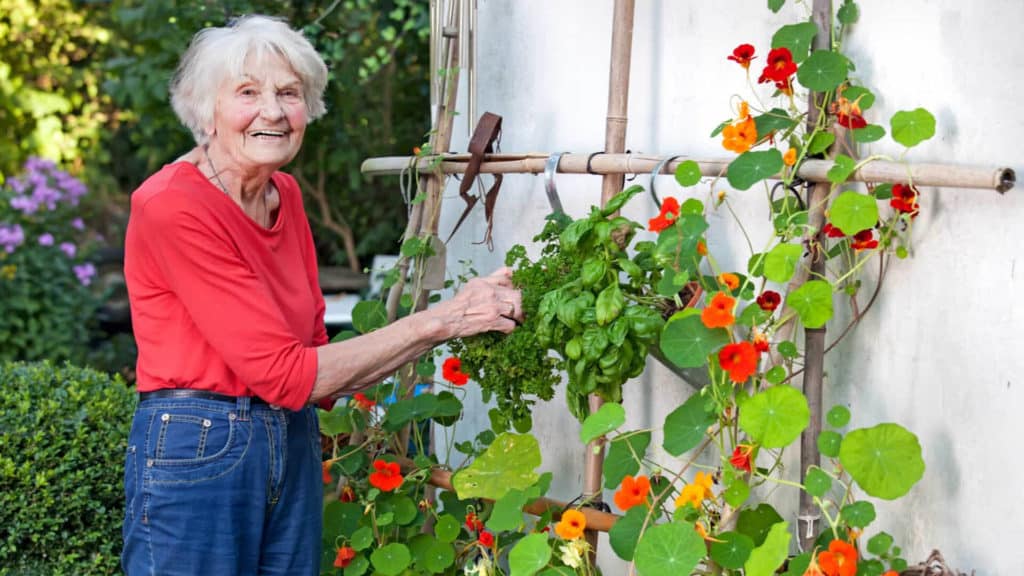Beginnings are always a little scary. You probably felt anxious on your first day of kindergarten, the first time you lived away from your family, and on the first day of your first job. The transition to senior living is no different. When contemplating where you’ll spend the next chapter of your life, it’s easy to feel overwhelmed.
Once you begin researching your options, you may find that the best really is yet to come. Senior living in Texas can be an adventure and an opportunity to embark on a fulfilling new journey. Allow yourself plenty of time to explore your options and don’t let anyone pressure you. After all, what works for a friend might not work for you. Nevertheless, be open to the full slate of senior living options and you might notice your anxiety shifting toward excitement.
Download The Complete Guide to Choosing Between Senior Living Options
Senior Living in Texas: Five Key Questions to Ask Yourself
You might make long lists filled with dozens of questions about your options for senior living in Texas. But before you narrow down your options, take a hard look at what you need. These five questions can help you honestly assess your options:
- What can I afford? Start by calculating how much your current lifestyle costs monthly and yearly, including mortgage, taxes, utilities, food, transportation, maintenance, and services. Then evaluate available funding sources such as home equity, savings, income, life insurance, long-term care insurance, and veteran benefits. Take time to make a detailed budget with various projections. Consult a financial planner if you need to. A clear budget that takes into account various contingencies can guide your decision.
- What is most important to me? Make a list of three to five non-negotiable goals for the next chapter of your life. Do you want to live near family? Be able to take up a new hobby or attend local classes? Close your eyes and envision your ideal retirement. Then write it down and start looking for it.
- What are my health needs—and how might they change over time? When considering housing, lifestyle, and care options, it is important to plan for current and future needs. Remaining at home may require extensive modifications, moving in with family may be difficult to sustain, and choosing a community that meets your needs today but will require another move as health or cognition changes may be difficult. Consulting doctors will help create realistic expectations. Regardless of where you choose to live, be sure that it will meet your long-term needs.
- How will my decision affect the people I care about? Consider how your decision might affect your loved ones. If you intend to stay in your home, do you plan to have your children care for you? Would the right senior living community make it easier to visit with your children or grandchildren? Don’t shy away from discussing options with your loved ones. You may find that their concerns are different from what you think they are.
- Is there anything I know I don’t want? Sometimes it’s easier to determine what you want by contemplating what you don’t want out of the experience. For example, are you worried about living too far away from family? Weighing these concerns can help you make a wise decision.
Staying at Home
Many older adults vow that they’ll remain in their homes no matter what. A desire for independence, a sentimental attachment to the home, and fear of the unknown can all play a role in this decision. Nonetheless, staying at home can be a great option for older adults who can have their needs met at home. Some factors you may want to consider are:
- Cost: If you need in-home care, it will typically be much more expensive than receiving the care at a senior living community.
- Access: Unless you are very well-integrated into your neighborhood, living at home can be more isolating than you might expect. This is particularly true if you must rely on others for transportation.
- Safety: You may need to make modifications to your home as you age, such as grab bars in the shower to prevent falls.
- Emotional needs: For many older adults, the challenges of living at home are worth the payoff of aging in a place that feels safe and is filled with happy memories. For others, remaining at home versus moving into a community with other older adults feels too isolating.
Living With Relatives
Living with relatives is, for some older adults, a happy midway point between remaining at home and moving into a senior living community. You’ll be around people you love who may be able to help you when you need it. For older adults with mild to moderate health problems or for those who can offer help with pets or grandchildren, living with loved ones can be an ideal choice. Some factors to consider are:
- The challenges of living with another family. No matter how much you love someone, living with them involves significant compromises and conflict management.
- How much help you need and whether or not your family can provide it. Consider how providing that support might affect their lives.
- How costs may change over time, particularly if you need in-home care.
- Whether or not living with family will isolate you from other family members or activities you enjoy.
Moving to a Senior Living Community
Moving to a senior living community is a major transition. Yet many older adults are surprised by how much they enjoy living in a community with other older adults—whether it’s an independent living community or one that offers extensive assistance. If you need regular help, a senior living community may be the most affordable option. Some important considerations are:
- What’s available in your area. Senior living communities exist on a continuum and include luxurious, resort-like settings and more pared-down options.
- Cost. Just as the accommodations at senior living communities vary, so too do their costs.
- Your needs and how they might change over time. Can the community you’ve chosen accommodate changing health needs?
- Transportation and access to activities. Many senior living communities offer a wide array of activities on campus. Others offer transportation to local activities. Make sure you choose a community that allows you to do the things you enjoy most.
- Proximity to loved ones. Consider choosing a community located near your loved ones.
There’s no right decision. There’s also no rule that you have to make this decision just once. If you decide to stay at home, you can change your mind later. Keep your mind open and continually survey your options as your needs change. You deserve to make this the best chapter of your life yet. Be willing to try something new and watch your senior years become a time of learning and vitality.




